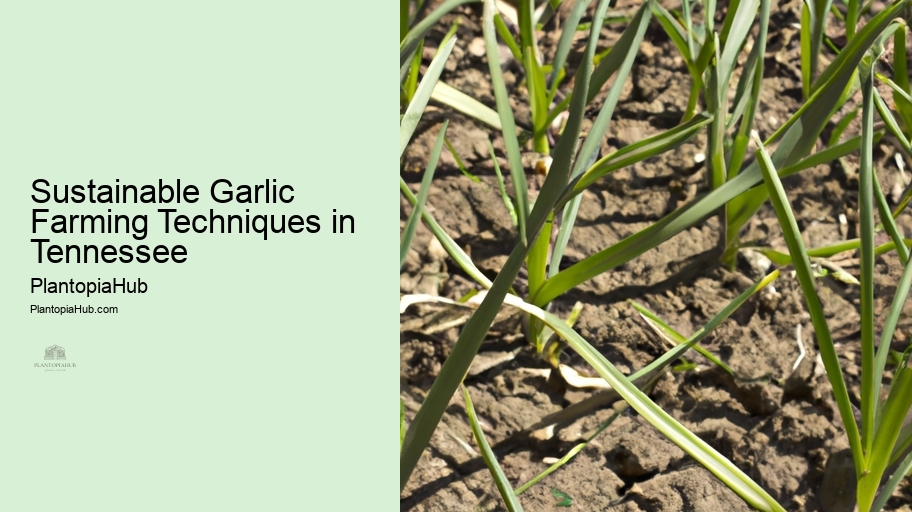

Efficient irrigation systems are essential for conserving water in Tennessee garlic farming. Drip irrigation or soaker hoses deliver water directly to the root zone, reducing water wastage and minimizing moisture-related diseases.
Monitor soil moisture levels and adjust your irrigation schedule accordingly, especially during hot and dry periods. By using water efficiently, you can maintain healthy garlic plants and save resources.
In conclusion, adopting efficient irrigation systems is a sustainable approach to water management in Tennessee garlic farming, promoting both plant health and environmental conservation.
Garlic can serve as an excellent companion plant in your Tennessee garden. Plant garlic near susceptible crops to deter pests like aphids and nematodes.
Companion planting with garlic can improve the overall health and yield of neighboring plants, creating a harmonious garden ecosystem.
In conclusion, understanding the benefits of garlic as a companion plant can enhance the success of your Tennessee garden while reducing the need for chemical pesticides.
Understanding the science behind garlic growth cycles is essential for successful cultivation in Tennessee.
By knowing the science behind these growth stages, you can make informed decisions about timing, care, and harvesting, resulting in healthier garlic crops.
In conclusion, delving into the science of garlic growth cycles is a valuable tool for Tennessee garlic farmers, ensuring optimal timing and care throughout the growing season.
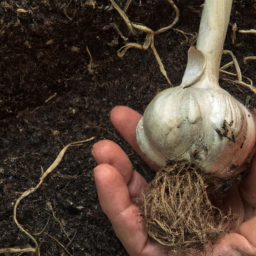
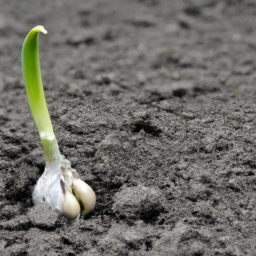
In Tennessee, selecting garlic varieties resistant to common pests can save you time and effort in pest management.
By choosing pest-resistant garlic varieties, you can reduce the need for chemical interventions and promote a healthier garlic crop.
In conclusion, opting for pest-resistant garlic varieties is a smart strategy for Tennessee farmers looking to minimize the impact of pests on their garlic crops.
Urban gardening in Tennessee can be challenging, but growing garlic in containers is a space-efficient solution. Select large pots or containers with good drainage and fill them with well-draining soil.
Place your containers in a sunny spot, water regularly, and follow the same planting and care guidelines as for in-ground garlic.
In conclusion, container gardening is a viable option for urban gardeners in Tennessee interested in cultivating their garlic, bringing homegrown flavors to city living.
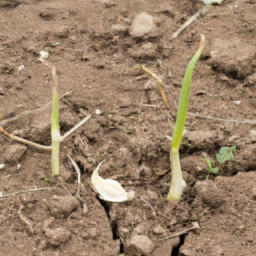
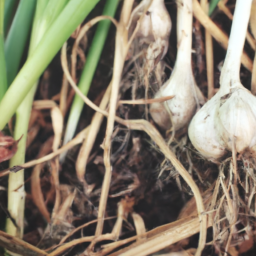
Climate change impacts agriculture in Tennessee, including garlic cultivation. Home Gardening Tips for Garlic Erratic weather patterns and temperature fluctuations can affect garlic growth. Adaptation strategies, such as adjusting planting dates and using mulch, can help mitigate climate-related challenges and ensure consistent yields.
Staying informed about climate change's local effects is essential for successful garlic farming in Tennessee.
In conclusion, acknowledging and addressing the influence of climate change is crucial for Tennessee garlic farmers to maintain a thriving crop.
Choosing the right tools is vital for efficient garlic farming in Tennessee. Invest in high-quality tools like dibblers, weeding tools, and harvesting knives. Select tools designed for garlic cultivation to streamline your work.
Proper tools not only save time but also contribute to the overall success of your garlic farm.
In conclusion, a well-chosen set of tools is a valuable asset for Tennessee garlic farmers, promoting efficiency and productivity.
Agricultural Sustainability Awards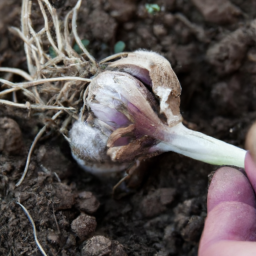
Crop insurance is essential for garlic farmers in Tennessee because it provides financial protection against unforeseen events that can impact crop yields, such as adverse weather conditions or crop failures. By investing in crop insurance, garlic farmers can secure their income and minimize potential losses, ensuring financial stability and peace of mind during challenging seasons.